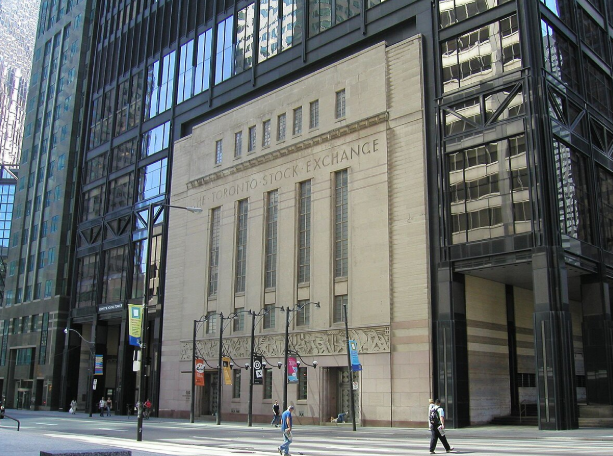Tsx The key stock market index in Canada edged forward on Monday with the help of the consumer discretionary sectors, and investors were waiting to see the July inflation data to influence expectations on when the Bank of Canada would next bring changes to the interest rates.

The Toronto Stock Exchange closed 0.1% higher as investors awaited July inflation data
Why did the TSX close higher on Monday?
The S&P/TSX Composite Index on the Toronto Stock Exchange closed 17.36 points higher, or 0.1%, at 27,922.85. The index was close to the record high of last Wednesday.
Consumer sector stocks led the way, with consumer staples rising 1.4% and consumer discretionary rising 0.8%. Communication services continued an eighth day of advances on hopes for future earnings growth for Canadian wireless companies.
What can economists expect in the inflation report?

The Bank of Canada is monitoring inflation closely as July’s report could guide its next rate move
Canada’s July consumer price index comes out on Tuesday. Annual inflation will likely slow to 1.8% from June’s 1.9%.
A below-forecast inflation number would raise the chance of a Bank of Canada rate reduction, said Lorne Steinberg, president of Lorne Steinberg Wealth Management Inc.
It would be positive for general market strength as well.
Where is the Bank of Canada today?
The benchmark interest rate of the Reserve Bank remains unchanged at 2.75% since March. The authorities have, however, signaled that they are ready to cut rates again if inflation remains under control.
Trade disruptions have made policymakers wary of price pressures, but policymakers are still being cautious. Investors are eagerly awaiting to know if easing inflation would prompt them to shift the current stance.
How did different sectors perform?
Consumer staples led the gains, as investors flocked into defensive havens. Discretionary stocks were also up, and communications shares posted a strong string of gains, supported by attractive valuations and steady dividend yields.
Energy stocks, meanwhile, dropped 0.4% even as oil prices settled effectively 1% higher at $63.42 a barrel. The materials sector fell 0.3% as gold and copper prices dropped.
Why did Air Canada’s shares fall?

Air Canada stock fell nearly 3% as a flight attendants’ strike entered its third day
Air Canada fell nearly 3% after the airline rescinded third-quarter and full-year 2025 guidance. The move occurred on the third day of a flight attendant strike, which had halted operations and made investors nervous about the health of earnings.
The retreat from financial targets weighed on the stock, which was among the weakest on the index on Monday.
What are futures markets saying this week?
S&P/TSX index futures declined 0.1% during early Monday trading. The decline came after the composite index had marked a 0.5% rise in weekly values on optimism over potential US rate cuts.
Markets will be in risk-off mode before a successive series of global events, the Ukraine peace talks, the U.S. Federal tsx Reserve policy symposium, and the Canada inflation release. Such developments will determine trading momentum in the coming days.
Also Read: https://colitco.com/canada-wildfire-season-2025-second-worst/
Final Thoughts
The TSX closed slightly upbeat as consumer-related stocks outweighed the negative performance of the tsx energy and material shares. Investors now await the inflation report that could influence the inflation bank of Canada rate policy and the direction of the whole market.












